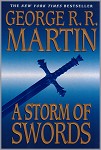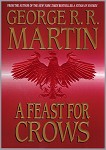The Artisan |
|
Artisans of all types can be found throughout the Seven Kingdoms, as well as across the sea in the Free Cities and beyond. These specialized craftsmen create all manner of beautiful things — pottery, paintings, toys, and other wonderful objects. Performers also fall under the Artisan’s banner, from storytellers and singers to jugglers and mummers. Some Artisans establish shops or permanent stages in cities and towns, especially near the keeps of powerful lords. Others are paid by noblemen to entertain with jests and song. Mummers travel across the Seven Kingdoms bringing their shows, handiwork, and often a bit of thievery wherever they stop. Blacksmiths, carpenters, and other utilitarian craftsmen are also considered Artisans. Even though the work they do is more vital than that of an artist or mummer, these lay craftsmen often have less contact with noble lords than do their more frivolous counterparts. Still, smiths are very important during times of war, and may be called upon to produce mass quantities of horseshoes, or simple weapons to equip the armies of their lord and his bannermen. Armorers are considered a cut above the common smiths, and highly prized by lords. Finally, diplomats, stewards, and merchants can also be considered Artisans. They may have been raised to a position of prominence from the smallfolk, or be from a cadet branch of a noble house, long fallen low in the world. Whatever their position, Artisans are often the bridge between noble and common blood. Adventures Craftsmen rarely go looking for adventure, although sometimes it finds them. Most are content to stay at home with their forges or lathes, making as good a living as can be had from their trade. Singers, storytellers, and mummers, however, are often found roaming the Seven Kingdoms in search of adventure. These fanciful folk seek inspiration for their tales and will brave a certain amount of danger in order to find it. Still, performers and craftsmen rarely put their noses into noble affairs if they can help it; it is considered best to stay out of sight until their skills are called upon. This holds less true for diplomats and merchants who court nobles as their livelihood; they are often drawn into greater machinations than they ever expected, though. CharacteristicsArtisans live by the skills they have learned throughout their lives, whether it be the art of crafting a suit of armor, learning to run a household, or amusing the ladies at court with jests, dancing, and foolery. Their combat ability is limited, but the best know how to defend themselves with words rather than steel. They can talk their way out of many disagreements, calling upon noble defenders in more dire situations. Over the course of a long career, an Artisan ideally becomes an established master of his craft, and may even attract a noble patron for whom the Artisan can work the rest of his or her days. OriginMany craftsmen and Artisans follow in a family tradition, trained by their fathers or uncles in the family’s line of work. Women can become Artisans as well, although it is uncommon for a woman in the Seven Kingdoms to apprentice or work outside the home in a craft or trade. Still, some rise to prominence within the great houses. Artisans who do not learn the trade from their fathers are usually apprenticed to masters: their parents hope to give their children a better life than they could provide. Mummers are also very family-oriented in their own way, although they are far more likely to adopt stray scoundrels and lost souls in their journeys than they are to have children of their own to teach. These youths are trained to be performers or to work the crowds that such performances always draw. BackgroundAll of the major and minor houses of the Seven Kingdoms have uses for Artisans of every type. Jesters and singers entertain the crowds during feasts and tournaments, smiths and fl etchers work day in and day out to provide weapons and armor for their liege’s armies, heralds and stewards keep the households running, and merchants buy and sell on the lord’s behalf. Independent Artisans are often called upon during times of war to provide additional services for the troops of a house at war, and some may even be pressed to fight if their services are not considered essential. Fools and mummers are scarce in war-torn lands, fearful that marauding lords may force them into service, confiscate their goods, or make their lives forfeit. AbilitiesArtisans live by their wits and their craft. Intelligence is therefore a key Ability for gaining Skill Points and excelling at a character’s chosen craft or profession. Wisdom is useful for professional expertise, and for ensuring they are not being taken advantage of. Charisma is also important for negotiating good terms with buyers, attracting noble patrons, and entertaining crowds to more easily part them from their money. Hit PointsArtisans gain 6 Hit Points at 1st Level, and 1 Hit Point per Level thereafter. The character’s Constitution Modifier applies. Class SkillsThe Artisan’s Class Skills (and the key Ability for each Skill) are: Appraise (Int), Bluff (Cha), Craft: Any (Varies), Decipher Script (Int), Diplomacy (Cha), Disable Device (Int), Forgery (Int), Gather Information (Cha), Knowledge: Architecture (Int), Knowledge: Foreign Culture (Int), Knowledge: History (Int), Knowledge: Legends (Int), Knowledge: Local Area (Int), Knowledge: Nobility (Int), Knowledge: Stewardship (Int), Perform (Cha), Profession (Wis), Search (Int), Sense Motive (Wis), Speak Language (None), Swim (Str). Skill PointsAt 1st Level, Artisans gain (7 + Int Modifier) x 4; humans gain +4 bonus Influence PointsAt each Level, Artisans gain 6 + Cha Modifier. Weapon and Armor ProficiencyArtisans are proficient with all simple weapons. Artisans are proficient with light armor. FocusAt 1st and 16th Level, the Artisan gains a +4 bonus to one Skill, chosen from the following list: Appraise, Craft (any), Forgery, Knowledge (any), and Perform. The Artisan may select the same Skill twice. Bonus FeatAt 2nd, 7th, 12th, 17th, and 20th Level, the Artisan may choose a bonus Feat from the following list: Able Body; Fame; Favored; Fortune’s Favor; Granted Status; Keen Mind; Gold Breeder; Literacy; Political Connections; Skill Emphasis; Silver Tongue; and Weapon Proficiency (Martial). Skill EmphasisAt 3rd and 10th Level, the Artisan gains the bonus Feat, Skill Mastery. This Feat may be applied to any Skills from the following list: Appraise, Craft (any), Forgery, Knowledge (any), and Perform. Fame and InfamyArtisans know that one lives and dies by one’s reputation. Similarly, they know that a well-placed word in a noble’s ear, or a song of glorious misdeeds can make life better or worse for a friend or enemy. At 3rd Level, an Artisan can modify a target’s Reputation by +2/-2 given sufficient time to lay the groundwork for rumors, whispers, and gossip to take effect. A target’s Reputation can be reduced to 0. In the Artisan’s native territory, the Artisan needs 5 days — Cha Modifier (minimum of 1 day) to affect a target. In a new land or unfamiliar territory, the Artisan needs 20 days — Cha Modifier x2 (minimum of 5 days) to effect a target. The effect is temporary, but continues for as long as the Artisan works at it. At 7th, 11th, and 15th Level the Artisan can affect 2, 3, or 4 targets’ Reputations simultaneously, keeping various rumors spinning the way a mummer juggles plates. At 5th Level the Artisan can affect a Reputation by +3/-3, at 9th by +4/-4, at 13th by +5/-5, and at 17th by +6/-6. EXAMPLE: Simultaneously, Mychel begins spreading salacious gossip about a young lady of Blackwood who also happens to be in Riverrun. It still takes three days for the rumours to take effect, but once they do, the poor girl’s Reputation (Honorable) is reduced by -2 for as long as Mychel continues to work at ruining her Reputation. EstablishedAt 4th Level, the Artisan has become established as a master of his or her art. The character now gains a +2 bonus to Bluff, Diplomacy, and Knowledge checks related to his specialty. For example, Aeron has just become an established painter and wishes to sell one of his wares. He receives a +2 bonus to the Diplomacy check made to haggle over the price with the interested noble. PatronageEstablished Artisans are able to attract patrons — nobles, merchants, and other wealthy men and women who gladly support them in their work. Nobles often use such patronage in their social maneuvering, as do merchants looking to become well known in higher social circles. It rarely matters to craftsmen, however, who are just happy to have a steady source of income. At 5th Level, the Artisan acquires a patron, and gains 6 Influence Points over him or her. The Artisan can ask for boons, such as money, favors, hirelings, invitations to social events, etc., exactly as an Influence check. The GM may add penalties to the check if the character recently received a boon, or bonuses if the character has recently done a favor for the patron. At 9th Level the Artisan acquires a second patron, who may also grant boons. The Artisan gains 6 Influence Points over him or her. At 14th Level the Artisan’s patrons value him or her greatly. The Artisan gains +3 Influence Points for his or her patrons (or a total of 9 Influence Points over each patron). If the Artisan has already spent personal Influence Points on these patrons, with the GM’s approval the Artisan can exceed the limit of 20 Influence Points on a person. Little BirdsAn established Artisan can be a powerful political figure. He or she travels in the best circles, and may be sought after by various brotherhoods or institutions. With a well-chosen word, a target’s Influence with a group may be enhanced or diminished. At 6th Level, an Artisan can modify a target’s Influence towards one group by +2/-2, given sufficient time to lay the groundwork for rumors, whispers, and gossip to take effect. A target’s Influence may be reduced to 0. In the Artisan’s native territory, the Artisan needs 10 days — Cha Modifier (minimum of 1 day) to effect a target. In a new land or unfamiliar territory, the Artisan needs 30 days — Cha Modifier x2 (minimum of 5 days) to effect a target. The effect is temporary, but continues for as long as the Artisan works at it. At 12th and 18th Level the Artisan can affect 2 or 3 targets’ Influences simultaneously. At 9th Level the Artisan can affect an Influence by +4/-4, and at 15th by +6/-6. This Special Ability stacks with others of a similar nature, to a maximum range of +6/-6. MasterworkAt 6th Level, a skilled Artisan can put together a masterpiece. For a craftsman, this may mean a beautiful sword or striking armor. Similarly, a singer might write an epic song, while a steward might organize impressive arrangements for a visiting noble. The Artisan gains a +2 to his or her check to create the object, art, or performance. A masterpiece will often be “stamped” with a maker’s mark, which may be a literal mark upon the item or a particular style that identifies the creator. To create a masterwork item (meaning object, art, or performance) takes time, skill, and often money. The DC for this check depends on the complexity of the item created, and is normally a Craft or Profession check. For example, a plain sword might be only DC 12, cost one-third a sword’s market value in resources, and take a fortnight. Similarly, a steward creating a reception for a visiting liege lord would need at least a month to properly prepare ... but, a minstrel might come up with a bawdy song in an afternoon. Sample DCs for various items are listed on Table 6-4. A standard item may cost up to 33% its market value in resources. A masterwork item will normally cost +100% to +200% for each +1 bonus it conveys. In certain cases, such as a bard writing a song, there may be no cost at all, of course. Additionally, if a blacksmith is crafting as sword for a knight, or a diplomat is constructing a delicate series of meetings for his or her lord, the cost will be paid by a patron, and not the Artisan. An approximate time is given for each item on the table, but again these are examples. Many items will take far less, or far greater times to create. The base times listed represent a full day of work, without interruption, and with appropriate tools, etc. (Note: these times do not include things like letting wood for a bow cure for several years). Should an Artisan have apprentices, time may be reduced accordingly. If the check barely succeeds, the item is of the desired quality. If the Artisan succeeds the check by 4-7, the item is produced in three-quarters the time; if the check is succeeded by 8 or more the item is produced in half the time. If the check is failed by 4 or less, the item is passable but mediocre (granting no bonuses, and possibly a penalty of -1). Failing by more than 4 means the work is wasted, and the resources are spoiled or spent. A masterwork weapon gives its wielder a +1 bonus to attack or damage. A masterwork armor is lighter or more comfortable to wear (reduces armor check penalties by 1). A masterwork tool or instrument provides its user with a +1 bonus to appropriate checks. A masterwork arrangement or performance provides the steward and/or his or her lord with a +1 bonus to appropriate checks (such as Diplomacy, Perform, or Profession checks). Usually a simple melee or thrown weapon can gain a maximum bonus of +1 (they simply don’t allow complex artistry). At 12th Level a masterwork tool, instrument, or arrangement provides a +2 bonus, but the time taken to make it is four times longer than indicated in the table. A masterwork weapon can be forged to provide +2 to attack or +2 to damage. Such weapons tend to cost anywhere from x10 to x100 as much as a normal weapon, and are usually martial or exotic weapons. Masterwork armor reduces armor check penalties by 1, and increases the maximum Dex bonus by 1. At 19th Level a masterwork tool, instrument, or arrangement provides a +3 bonus, but the time taken to make it is nine times longer than indicated in the table. A masterwork weapon can be forged to provide a bonus of +1 to attack and +2 to damage (or +2 to attack and +1 to damage). Masterwork armor reduces armor check penalties by 2, and increases the maximum Dex bonus by 2. Patron’s Gift:At 16th Level, a patron of the Artisan has given the character a powerful gift. The Artisan gains a bonus Feat from the following list: Authority; Fame; Favored; Noble Spirit; Political Connections; or Wealth. The Artisan can take this Feat whether or not he or she meets the Feat’s prerequisites.
|
|||||||||||||||||||||||||||||||||||||||||||||||||||||||||||||||||||||||||||||||||||||||||||||||||||||||||||||||||||||||||||||||||||||||||||||||||||||||||||||||||||||||||||||||||||||||||||||||||||||||||||||||||||||||||||





















